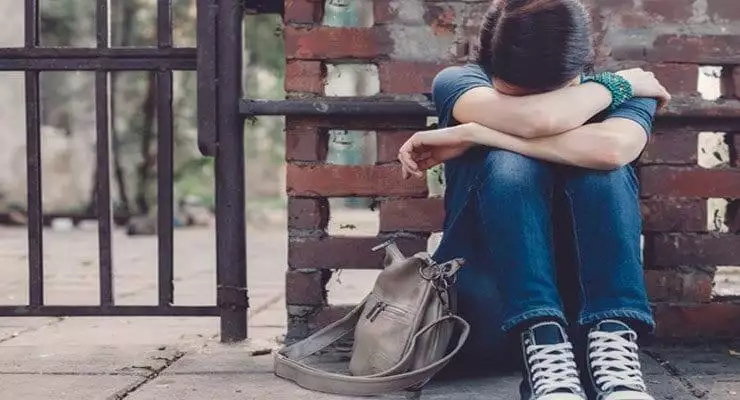In March of 2017, Netflix’s 13 Reasons Why debuted; a series based on a novel by Jay Asher. The show follows high school student Clay as he listens to a series of cassette tapes made by fellow student, Hannah, who died by suicide.
I was hesitant to watch despite being told by several friends and colleagues how captivating and binge-worthy the show was.
Being a mother who suffers with depression and suicidal ideation, I was afraid it could be triggering.
My fears were confirmed when I watched the episode in which Hannah successfully kills herself. Though my breathing became labored, my head dizzy, I kept on watching because I felt I needed to.
It was one of the most realistic depictions of suicide I have seen to date. And that’s a double edged sword for several reasons.
I absolutely loved the conversation that 13 Reasons Why opened up among parents and their children; a conversation that is so often taboo, it’s rarely spoken about.
However, if a child is already depressed and has feelings of suicidal ideation, the show, if not watched with viewer discretion, can be dangerous.
With that said, the show does not cause suicide.
Let me repeat that for those in the back: The show does NOT cause suicide.
The World Health Organization advises news media to avoid explicit explanations depicting suicide. The guide also states that portrayals of suicide in fiction can be influential to young children.
But you know what else is influential? Real life, bullying, and mental illness that goes undiagnosed.
Most recently, in April, two teenagers died by suicide after watching the show, and their parents are blaming the series for their deaths.
Priscilla Chui, 15, of California had been battling depression. Her uncle Peter, whom she lived with, said that Priscilla’s grades were dropping and that she hated school.
Peter Chui told Fox LA, “I feel it’s [13 Reasons Why] dangerous for that small percentage of young adults who the show can become a trigger for them and I feel as if the show gives only one alternative for cyber bullying and other teenage issues.”
13 Reasons Why show writer Brian Yorkey spoke out about the claims that the show caused suicides, “Many people are accusing the show of glamorizing suicide and I feel very strongly—that we did the exact opposite. What we did was portray suicide and we portrayed it as very ugly and very damaging.”
As a mother, I can not imagine the pain these family members are going through. And I also understand that because there is no logic behind suicide to the surviving loved ones, it’s easier to place blame somewhere so that you can digest the death that otherwise might never provide closure.
But as someone who has attempted in the past, I have to say that a television show is not the reason for someone committing suicide.
In order to be successful, or even attempt, you have to want it. And a show, or a movie, or a song is not going to be the deciding factor.
It’s what’s in your heart and your mind that allows you to follow through with suicide.
If someone murdered another person, and said they were inspired by Dexter, the Showtime series that ended in 2013, would we call out the show or accept that the murderer is mentally ill?
You have to have the strength (and yes, it’s strength, not weakness) to go through with an attempted suicide. Someone on a television set is not going to provide that strength for you.
According to the National Alliance on Mental Illness, 1 in 5 kids ages 13-18 experience a severe mental disorder at some point in their life. That’s a little over 21% of all children in the United States.
If you’re aware that your child is suffering from a mental illness, there are resources to help!
ProjectUROK.org aims to help teens de-stigmatize mental illness and reduce teen suicide.
PBS has an entire list of resources that both parents and teens can utilize and it can be found here.
If you’re not sure whether your teen is exhibiting signs of depression and/or suicidal ideation, here are some warning signs you can look out for according to WebMD:
• Apathy
• Complaints of pains, including headaches, stomachaches, low back pain, or fatigue
• Difficulty concentrating
• Difficulty making decisions
• Excessive or inappropriate guilt
• Irresponsible behavior — for example, forgetting obligations, being late for classes, skipping school
• Loss of interest in food or compulsive overeating that results in rapid weight loss or gain
• Memory loss
• Preoccupation with death and dying
• Rebellious behavior
• Sadness, anxiety, or a feeling of hopelessness
• Staying awake at night and sleeping during the day
• Sudden drop in grades
• Use of alcohol or drugs and promiscuous sexual activity
• Withdrawal from friends





